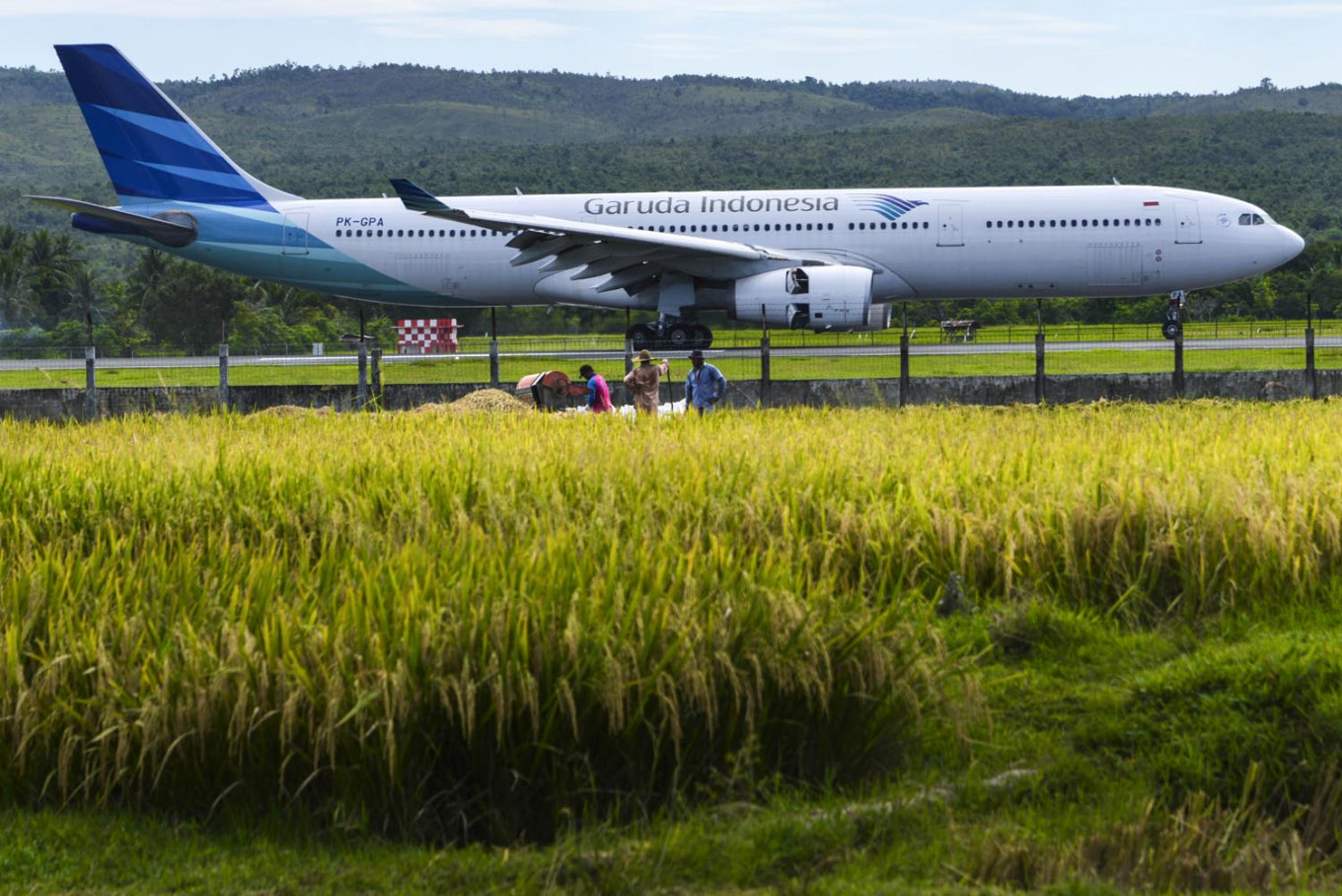Popular Reads
Top Results
Can't find what you're looking for?
View all search resultsPopular Reads
Top Results
Can't find what you're looking for?
View all search resultsLiquidity support for airlines: Should government pay for it?
The government and the taxpayers they represent, should be concerned when asked to restructure undeserving companies; those that had been performing poorly even before the pandemic hit.
Change text size
Gift Premium Articles
to Anyone
T
he aviation industry has been among the most severely impacted by the COVID-19 pandemic due to severe travel restrictions imposed by most governments around the world. Lockdown measures have put tremendous pressure on airline sales and revenue, prompting them to turn to the government for bailouts.
Airlines are big employers that do not hesitate to pull “the too big to fail card” during turbulent times such as these. Keeping them in business may help blunt unemployment blows. Runaway unemployment may end up costing governments more in social payments.
According to the International Air Transport Association (IATA), failure to save airlines from imminent collapse may cost Europe 6.7 million jobs and US$452 billion. Government intervention to rescue the industry can only be justified if it actually saves jobs, keeping more tax revenues that it would have to cough up in social payments otherwise.
Some major airlines are already discussing bailout deals. Germany’s Lufthansa, the third-largest airline by revenue as of January, has been offered a $9.8 billion bailout deal in exchange for 20 percent state ownership. Its fate now hangs at the mercy of European Union competition regulators. Closer to home, Singapore Airlines is hoping to raise $6.2 billion selling rights issue. The United States government has pumped $58 billion in stimulus into domestic airlines.
At home, under the national economic recovery program, the government of Indonesia is in the process of finalizing $1 billion in bridging loans for Garuda Indonesia, helping the newly reformed national flag carrier stave off a debt default. The rescue plan includes a proposal to restructure Garuda’s $500 million sukuk by next month and arrange the remaining half as new loans to meet working capital requirements in the next three to six months.
Justifying liquidity support based on state ownership status might make matters worse by compounding moral hazards with information asymmetry problems. The former occurs when recovery recipients are perversely incentivized to take excessive business risks because they have alternative sources of funding should business go south. The latter occurs when recipients are in possession of greater strategic information than the government, which is tasked with restructuring.
The government and the taxpayers they represent, should be concerned when asked to restructure undeserving companies; those that had been performing poorly even before the pandemic hit.
Luckily, among several alternatives, we have the Altman’s Z-score at our disposal to sniff them out. The index uses financial health indicators such as working capital, retained earnings, earnings before interest, tax, depreciation and amortization (EBITDA), total sales and equity’s market value to predict the likelihood of bankruptcy. Z-scores larger than 2.6 indicates excellent financial health while scores below 1.1 signals a company in distress, inching toward bankruptcy.
According to Bloomberg data, Garuda’s Z-scores have been in decline since the second quarter of 2016 (Q2-2016). It touched a historic low of 0.2 in December 2018 under the scandal-ridden previous management. The last four quarters have witnessed a steady comeback in the 0.6-0.8 range but still no way near major airlines under their respective government bailout programs. Singapore Airline and Lufthansa’s pre-pandemic scores were cruising in the 1.2-1.5 range.
Bloomberg data also shows that Garuda underperforms its regional peers. Garuda flew 74 percent full while the average load factor among Asian airliners stood at 81 percent during 2017-November 2019. Garuda was faring slightly below Thai Airways, Malaysia Airlines and Japan Airlines, which flew 78-80 percent full. Load factors for all other major Asian airlines were north of 80 percent.
At any rate, the newly appointed management deserves a fair shake. It was just about fly out of massive turbulence in January when the coronavirus clipped its wings.
On the other hand, the rescue plan seems to also neglect the demand side perspective. The industry’s comeback will largely depend on our ability to fight this pandemic. The ban for Indonesian travelers has been in effect since March 16, which might impact a substantial portion of nearly 25 percent of Garuda international routes bound for Japan, South Korea, Malaysia and Saudi Arabia. There are also strict health and safety requirements for Indonesians visiting Singapore and Hong Kong. The domestic demand is also moderated by the pandemic- induced domestic flight services.
Regaining consumer confidence is key in getting the most out of this restructuring deal. Otherwise, it might be more prudent to pour cash into other transportation subsectors, such as transit systems, intercity buses, cargo or logistics. Better yet, it might be wiser to invest more in massive testing and medical infrastructure so that we can better prepare for subsequent waves of the outbreak.
Taxpayer money would be better spent when passengers’ health and safety were considered in the rescue package. Inflight and airport hygiene protocols are good starts. Only then we, as taxpayers, can take pride in our national flag carrier.
***
Ibrahim Kholilul Rohman is a lecturer at the School of Economics and Business, University of Indonesia and Harya S. Dillon is secretary-general of the Indonesian Transportation Society.










